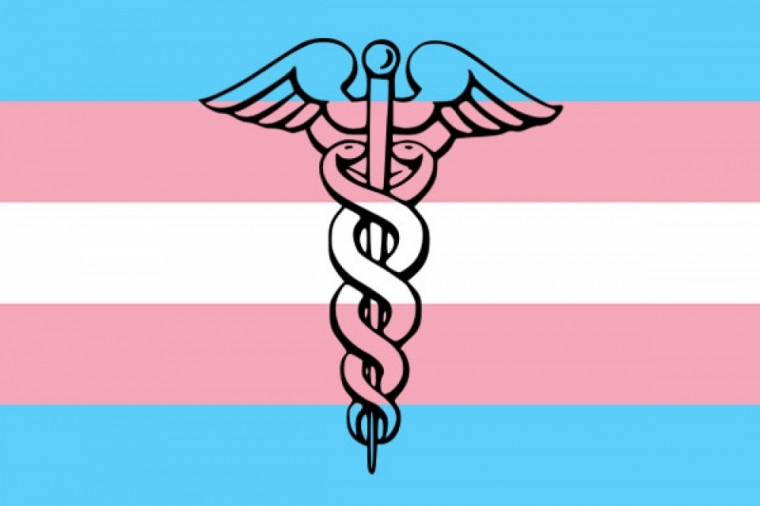It’s been a while since the last time I wrote here. A lot has happened in my personal life, and also in my country, since my last blog post. In happy news, on June 4, 2016, I married my best friend and love of my life. I’ll write another time about how we planned our wedding ceremony and celebration to reflect our values, and how wonderful and empowering our wedding felt. In unhappy news, my country elected a president and vice-president who seem at the very least complicit in, and at the very worst actively committed to a roll-back of civil rights for transgender Americans like me. The first salvo in this fight is the proposed repeal of the Affordable Care Act, known to most as Obamacare. The ACA isn’t perfect, but it contains a myriad of provisions, including protections that make a real difference in transgender people’s lives.
Today is January 16th, 2017 — the day we celebrate civil rights legend Dr. Martin Luther King, Jr. In honor of Dr. King’s legacy of service and political activism, I have written an open letter to the United States Congress, urging them to halt the repeal of the ACA.
My story is singular; I am only one of millions of Americans who will be affected if the Affordable Care Act is repealed without preserving its essential benefits. I urge others to speak up with their stories. Write a letter or an email. Make a phone call. Attend a protest. Make your voice heard.
The text of my letter follows below. Here’s a link to the PDF version. Please feel free to share, or to use my letter as inspiration or a template to write your own. We must speak out.
Open Letter to the Congress of the United States of America:
Aiden James Kosciesza
Philadelphia, PA 19104January 16, 2017
United States Congress
Capitol Building
East Capital St NE & First St SE
Washington, DC 20004To the Honorable Congresspeople of the United States:
My name is Aiden Kosciesza, and I am writing to you today, on the Martin Luther King, Jr. Day of Service, in support of the Affordable Care Act, colloquially known as “Obamacare.” I am a millennial, a young professional, and a transgender man. The Affordable Care Act has provided real, enormous benefits to me and my family, and I am appalled that Congress is moving to repeal this program and take away all of the great things that the ACA brought to our country. I want to share my story with you, and implore you to do everything in your power to stop the repeal of the ACA, and preserve the key benefits that mean so much to millions of Americans like me.
I am a full-time, tenure-track college professor, but four years ago, I was still an adjunct instructor. At one point I taught six classes for three schools in two different states during the same semester. Since I was technically working part-time for each separate employer, none of them were required to provide health care coverage. For three precarious years I had no coverage at all, and avoided going to the doctor even when I really needed to. Without insurance, I just couldn’t risk the cost of a doctor’s visit. Only through the Affordable Care Act’s marketplace was I able to get insurance, and only through the ACA’s subsidies was I able to pay for it.
When I moved into a full-time position, I continued to see the benefits that the Affordable Care Act provided for my students, and for my friends and family. My younger brother was able to stay on our parents’ insurance while he looked for a job after graduation. My friends who were self-employed or still working part-time were able to afford insurance with the help of ACA subsidies. My godson, born in 2016 to a friend who is an adjunct professor, could only come into this world because of the ACA plan that covers his mother. So many people in my life are healthier because of the Affordable Care Act.
As for myself, even after moving to employer-provided health insurance, I still see great benefits from the ACA that I am loath to lose. The protections in the Affordable Care Act make it illegal for insurers to discriminate against me because of my gender identity. This has a huge economic impact on me as a transgender person. If an insurance company is allowed to make blanket exclusions of care for people like me, then I have to continue to pay out of pocket for medical expenses that my doctor has deemed necessary and essential. This puts a young family like mine in a precarious position.
Without the Affordable Care Act, I am left with the absurd choice: health or home? If I have to pay out of pocket for my health care, I can’t possibly afford to save up a down payment for a house, much less start a family with all of its attendant costs. I often hear older people criticize my generation, the millennials, asking why we aren’t participating in the economy at the levels they expect. How can we, when we’re forced to choose between paying for our health care or securing stable housing? If Congress goes through with the repeal of the ACA, millions of Americans will be right back where we started: a position of financial insecurity that makes us unable or unwilling to take on major life expenses. Make no mistake – this insecurity will have long-term effects on our economy and our nation.
This decision is about much more than politics. Prosperity begins with people, and the American people will suffer irreparable harm if their health is not protected. I do understand that the political line is “repeal and replace” – that a nebulous “something better” is waiting in the wings. If Congress really does want to pass a new health care bill that will preserve the great benefits of the Affordable Care Act while also fixing some of its problems, I will support those efforts. But to repeal any part of this law before a clear, concrete, complete replacement has been written, analyzed, tested, and passed through both the House and the Senate is partisan political theater that will literally cost American lives.
I urge you to stop this madness. Do not allow the essential benefits of the Affordable Care Act to be taken away from the Americans who need them. Your legacy is at stake – and so are our lives. We are counting on you to do the right thing.
Respectfully,
Aiden James Kosciesza
Philadelphia, PA 19104


